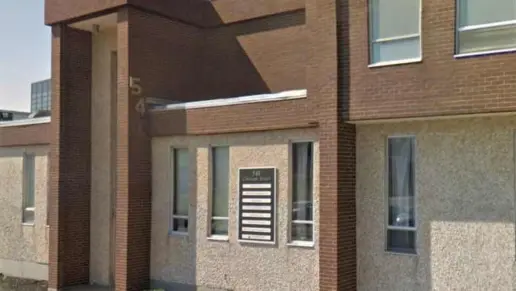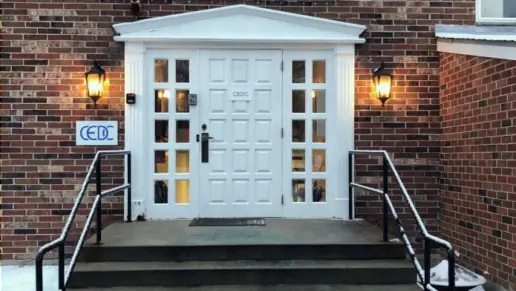About Granite Recovery Center
Granite Recovery Centers is an organization with multiple addiction treatment centers throughout New Hampshire and Maine, including a location in Salem, New Hampshire where clients can receive addiction recovery services at New Freedom Academy. They offer an inpatient program, an intensive outpatient program (IOP) and a partial hospitalization program (PHP).
Their IOP services are for those who have completed inpatient treatment or have less severe substance abuse issues. Clients attend the intensive outpatient program between 9:00 a.m. and 12:20 pm, participating in three groups a day. The facility serves breakfast and lunch to clients during this time period. Specialized programs are also available for young adults and veterans.
New Freedom Academy provides 24-hour care and uses different therapies and medication to treat patients in residential rehab. They have the option of multiple therapeutic approaches, including dialectical behavioral therapy (DBT) and cognitive behavioral therapy (CBT).
Clients can choose to either have a room to themselves or live with a roommate. The schedule throughout the day will consist of individual and group counseling sessions. Some group sessions that patients will participate in are the nutrition and wellness group and the therapeutic community group. Most patients, on average, will stay at the facility for 30 days. If the substance use disorder is severe, clients will stay longer than 30 days.
Short term residential care involves the same treatments but for a shorter duration of usually three to six weeks. The addictions treated at New Freedom Academy include cocaine, alcohol, and codeine. Combined with individual and group therapy, staff members also provide clients with yoga therapy, recreational therapy, and PTSD treatment.
Facility Overview
Latest Reviews
Rehab Score
Gallery

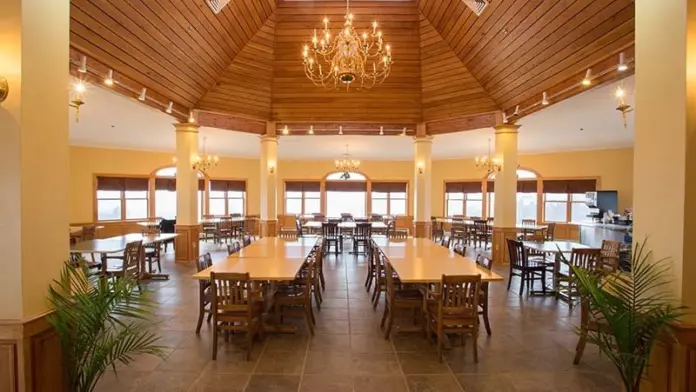
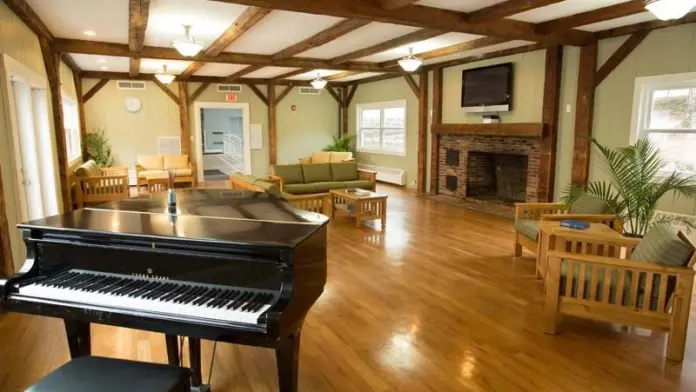
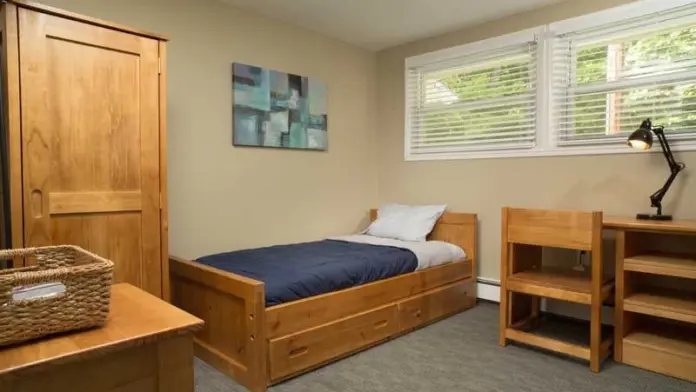
Location
Accepted Insurance



Other Forms of Payment
Private insurance refers to any kind of healthcare coverage that isn't from the state or federal government. This includes individual and family plans offered by an employer or purchased from the Insurance Marketplace. Every plan will have different requirements and out of pocket costs so be sure to get the full details before you start treatment.
Self-pay involves paying for treatment out of your own pocket. You can use savings or credit, get a personal loan, or receive help from family and friends to fund your treatment. If you don't have insurance or your insurance plan doesn't cover a specific program, self-pay can help ensure you still get the care you need.
Financial aid can take many forms. Centers may have grants or scholarships available to clients who meet eligibility requirements. Programs that receive SAMHSA grants may have financial aid available for those who need treatment as well. Grants and scholarships can help you pai for treatment without having to repay.
Medicaid is a state based program that helps lower-income individuals and families pay for healthcare. Medicaid covers addiction treatment so those enrolled can use their coverage to pay for rehab. When a program accepts Medicaid the client often pays very little or nothing out of their own pocket.
Addiction Treatments
Levels of Care
Treatments
Substance rehabs focus on helping individuals recover from substance abuse, including alcohol and drug addiction (both illegal and prescription drugs). They often include the opportunity to engage in both individual as well as group therapy.
Programs

Clinical Services
Group therapy is any therapeutic work that happens in a group (not one-on-one). There are a number of different group therapy modalities, including support groups, experiential therapy, psycho-education, and more. Group therapy involves treatment as well as processing interaction between group members.
In individual therapy, a patient meets one-on-one with a trained psychologist or counselor. Therapy is a pivotal part of effective substance abuse treatment, as it often covers root causes of addiction, including challenges faced by the patient in their social, family, and work/school life.
Cognitive behavioral therapy in New Hampshire involves several steps to healing. The therapist will first help you identify stressful conditions currently in your life. You'll then identify your thoughts and beliefs about these challenges. Next, you'll identify inaccurate thoughts, and lastly you'll change those thought patterns, which will lead to changed behavior.
The goal of trauma therapy is to address the lingering emotional and physical effects that traumatic experiences can have on your life. Therapists help you to process the traumatic event so you can more easily manage your physical and emotional responses and develop compassion for yourself.
When you develop life skills during drug rehab in New Hampshire, you learn how to adapt to challenging situations and tasks. You learn coping strategies and techniques that allow you to live a healthy, sober lifestyle.
Dialectical behavior therapy is a form of talk therapy. While it's similar to cognitive behavioral therapy, it adds a focus on intense emotions. Its goal is to help you learn to manage difficult feelings and make positive changes.
Amenities
-
Residential Setting
Staff & Accreditations
Staff
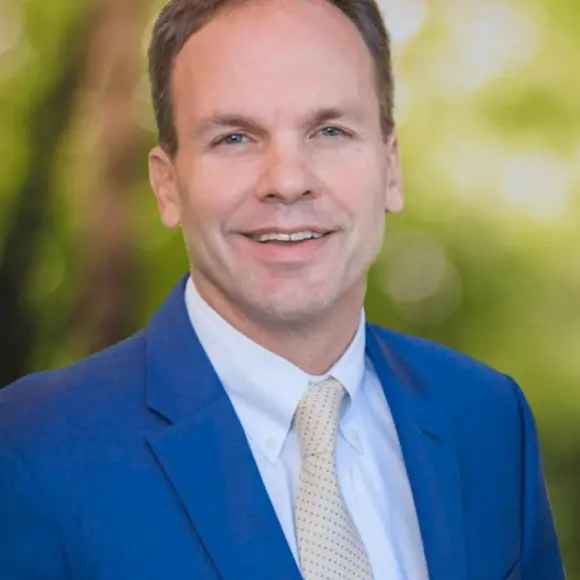
CEO
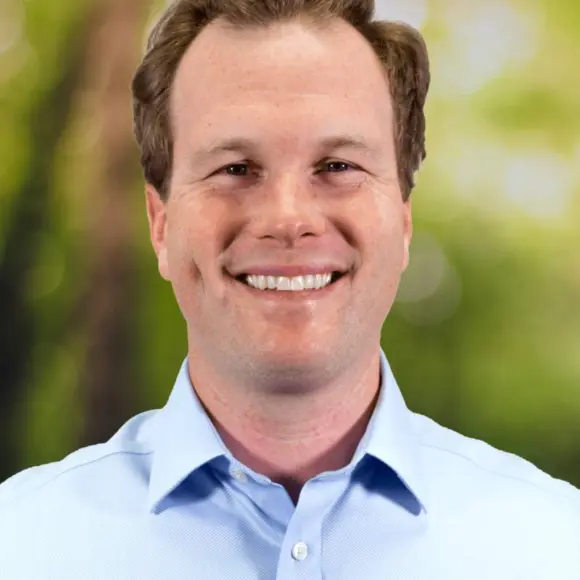
VP of Business Development

Director of Compliance

DOA

Director of Nursing
Accreditations

The Commission on Accreditation of Rehabilitation Facilities (CARF) is a non-profit organization that specifically accredits rehab organizations. Founded in 1966, CARF's, mission is to help service providers like rehab facilities maintain high standards of care.
CARF Accreditation: Yes

LegitScript has reviewed Granite Recovery Center as part of their certification program, and has determined that it meets the LegitScript standards for legality, safety and transparency.
LegitScript verified in January 2021
Contact Information
6 Manor Pkwy
Salem, NH 03079








